Navigating the financial aspects of a Homeowners Association (HOA) can seem daunting at first. However, with the right guidance and understanding, managing these responsibilities becomes much more straightforward. In this blog, we’ll explore some expert tips to keep your HOA’s finances in check while fostering financial health and peace of mind.
1. Understanding the Basics of HOA Finances
The first step in managing your HOA’s finances is understanding the fundamentals. Familiarize yourself with financial statements, common terms, and the basic structure of your HOA’s budget. By doing so, you can identify the key areas that require attention and ensure that your community is financially stable. Developing a clear grasp of revenue streams such as dues and assessments is crucial, as well as understanding the potential liabilities your association might face. An effective way to deepen your understanding is to engage with financial workshops tailored for HOA board members, which can empower you with the necessary skills and knowledge.
Additionally, leveraging financial tips can significantly enhance your understanding and bolster your management strategies. For example, implementing strategic approaches such as deferred maintenance funds ensures expenses are met without surprising residents with hefty fees. Adopting these best practices establishes a strong financial foundation for your HOA.
2. Importance of a Well-Structured Budget
A comprehensive budget is the backbone of good financial management. It should detail expected income and expenses, promoting transparency and accountability in your HOA’s financial dealings. A well-structured budget acts as a roadmap, guiding decision-making and prioritizing projects and community improvements. Start by categorizing all potential income sources and anticipated expenses, including administrative costs, maintenance, utilities, and community enhancements. The budget must also accommodate for unexpected costs, ensuring there are enough buffers to handle emergencies efficiently.
Engaging the community in budget discussions not only fosters trust but also allows for a democratic approach to financial planning. Consider hosting quarterly budget assemblies to provide updates and solicit input from residents. By integrating community feedback, you can optimize resource allocation and ensure that the budget aligns with communal interests and needs. Remember, sound budgeting is not a static exercise but an evolving process that reflects current and future objectives of the HOA.
3. Regular Financial Reviews and Audits
Conducting regular financial reviews and audits helps ensure that your financial practices are on track. These reviews can prevent fraud and help identify areas for improvement. It’s wise to schedule these assessments annually, allowing for expert appraisal of financial records and transparency in allocation. In addition to audits, monthly reviews can keep tabs on financial activities, spotting trends or discrepancies early. Regular audits are not merely a legal formality but serve to bolster confidence among residents, reassuring them of robust financial governance.
Consider employing external audit services for the depth of expertise they offer. By obtaining unbiased assessments, your HOA can maintain a rigorous standard of financial oversight and identify innovative solutions for financial challenges. Establishing a culture of budgeting responsibly underscores your commitment to safeguarding community resources, ultimately fortifying the HOA’s reputation as a financially prudent and responsible entity.
4. The Role of Reserve Funds
Reserve funds are essential for covering unexpected expenses and future capital improvements. A healthy reserve fund can save your HOA from financial distress during unforeseen events. By maintaining a reserve fund, you ensure readiness for repairs, renovations, and potential emergencies without the need to impose steep assessments on homeowners. The importance of accurate reserve studies cannot be overstated; by evaluating the lifespan of property elements, you can precisely allocate funds for their replacement or upgrade.
Foresight in reserve planning not only protects the community’s financial interests but also enhances property values by ensuring community assets are well-maintained. Regularly updating and revising reserve fund strategies can equip your HOA to seamlessly execute repairs and improvements. Engaging with financial experts can further refine your approach, as they bring valuable insights into optimizing reserve fund utilization.
5. Managing Delinquent Accounts
Handling delinquent accounts with fairness and empathy is crucial. Develop clear policies and communicate them effectively to maintain community harmony. Delinquent accounts can strain financial resources and create tension among residents. To minimize this, establish transparent processes for both collections and dispute resolution. Offering flexible payment plans can provide relief to those struggling, while reinforcing the obligation to contribute fairly to community upkeep.
6. Collaborative Budgeting and Decision Making
Involving community members in the budgeting process fosters cooperation and transparency. Collaborative decision-making ensures everyone’s voice is heard. This approach not only enhances democratic governance but also encourages members to take ownership of the community’s well-being. Empowering residents to contribute ideas and feedback can lead to innovative solutions and foster a greater sense of belonging.
7. Importance of Financial Transparency
Transparency builds trust among HOA members. Regularly sharing financial updates with the community keeps everyone informed and involved. Open communication about financial matters not only wards off potential disputes but also attracts potential homebuyers. Detailed reports on how funds are utilized further highlight the importance of community involvement in the decision-making process.
To bolster transparency, consider making meeting minutes and financial reports easily accessible. By implementing a culture of openness, board members instill confidence and foster stronger community ties, ensuring that financial stewardship becomes a shared responsibility.
8. Leveraging Technology for Efficient Management
Utilizing financial management software can simplify complex tasks, streamline processes, and reduce errors in financial operations. Advanced tools offer features like automated reporting, expense tracking, and predictive analysis, which make managing HOA finances more efficient and accurate. By embracing digital solutions, your HOA can facilitate real-time access to financial data, improving agility in handling financial issues and enabling informed decision-making.
9. Legal and Regulatory Compliance
Ensure your HOA remains compliant with applicable laws and regulations. Staying informed about legal requirements is crucial for financial integrity. Regularly reviewing state and local legislation can help identify changes that might impact your community. Additionally, consulting with legal professionals can illuminate potential compliance challenges and mitigate legal liabilities.
10. Training and Education for Board Members
Continuously educating board members on financial management practices strengthens your HOA’s financial foundation and improves decision-making. Training sessions and workshops tailored for HOA members are beneficial, offering insights into best practices and emerging financial trends. By cultivating a knowledgeable board, your HOA can navigate financial complexities with confidence and strategic foresight.
11. Strategies for Effective Expense Management
Implementing strategies for monitoring and controlling expenses ensures that your financial resources are used wisely and efficiently. Regular reviews of expenditure patterns can help identify excessive costs or budget misalignments. Encourage cost-saving initiatives within the community, such as energy-efficient solutions or collaborative service contracts, to reduce unnecessary spending and optimize resource allocation.
12. Preparing for Economic Challenges
Anticipate economic fluctuations and prepare accordingly. Strategic planning helps your HOA weather financial storms and remain resilient. By conducting scenario analyses and stress tests, your community can adjust plans to accommodate various economic conditions. Additionally, establishing contingency plans and reinforcing emergency funds can protect your association from unexpected downturns.






